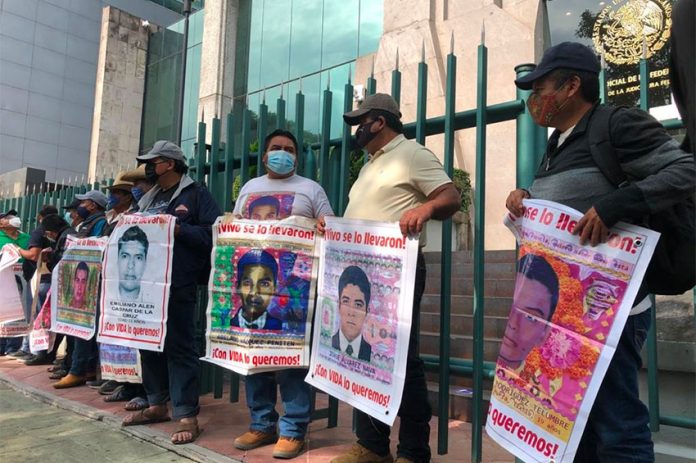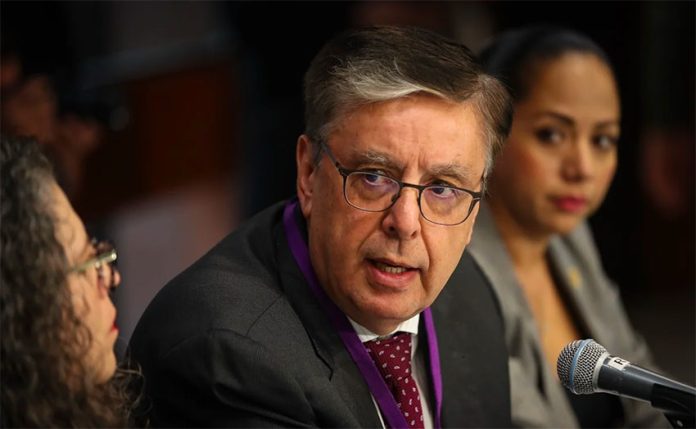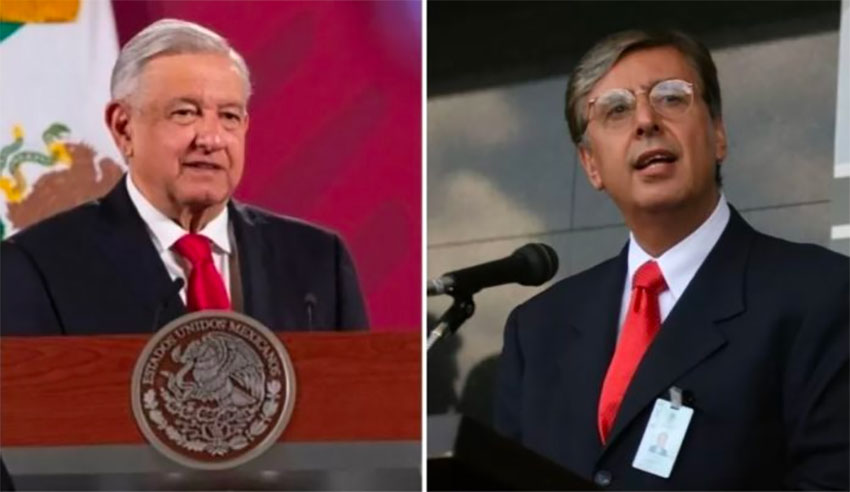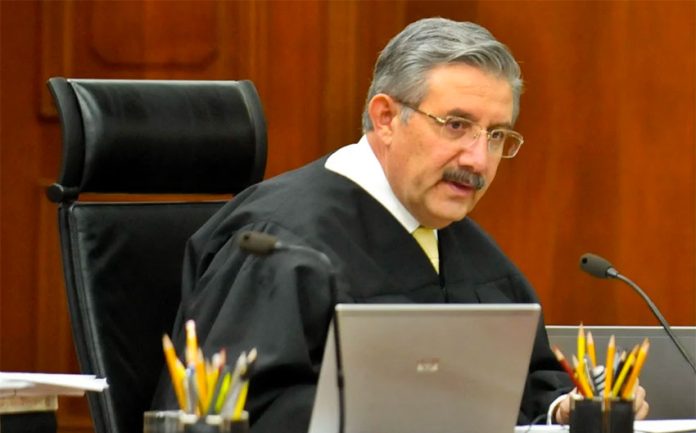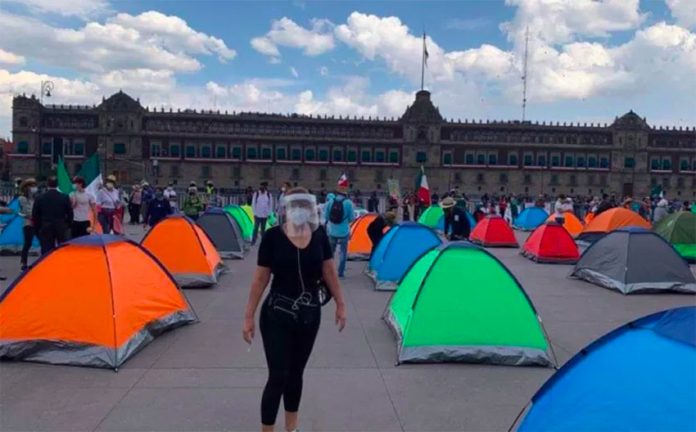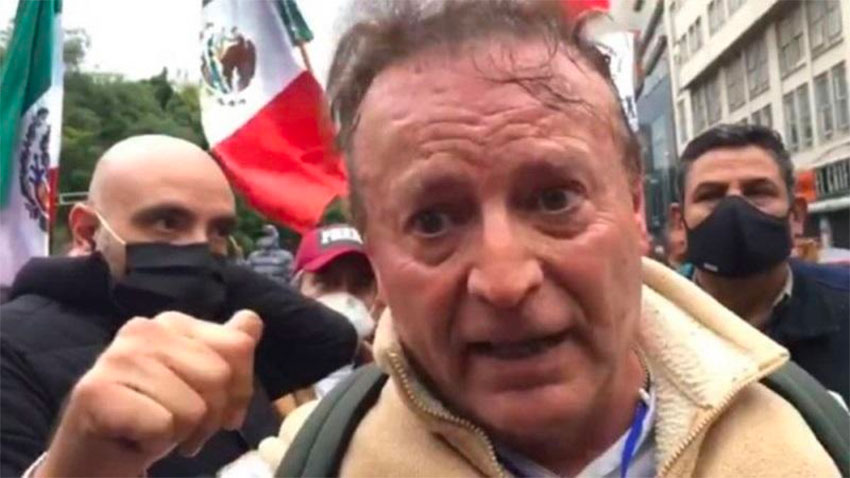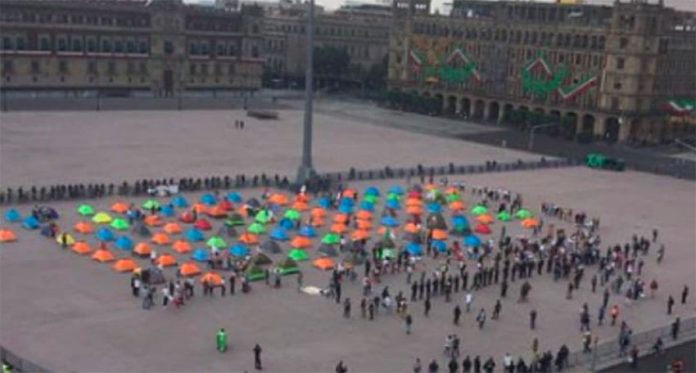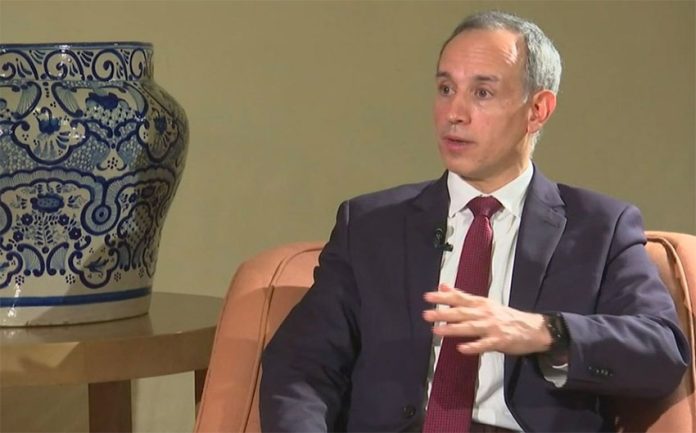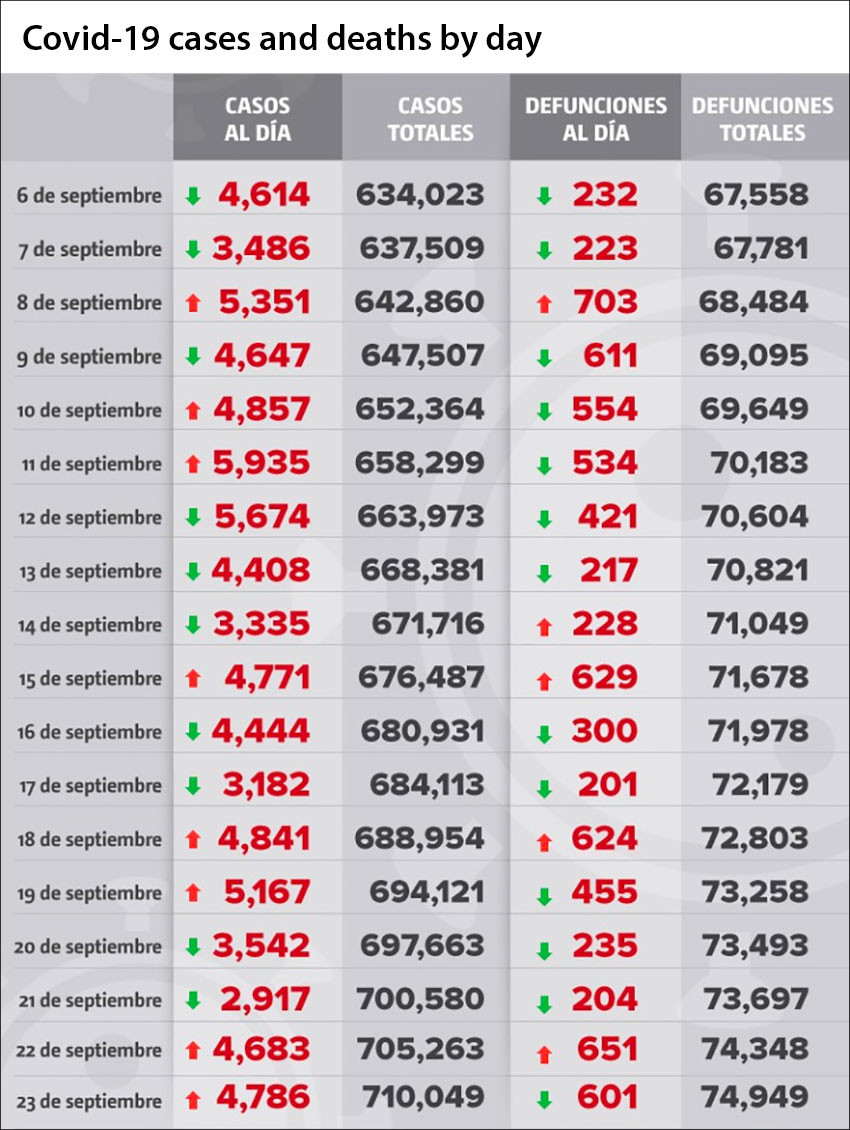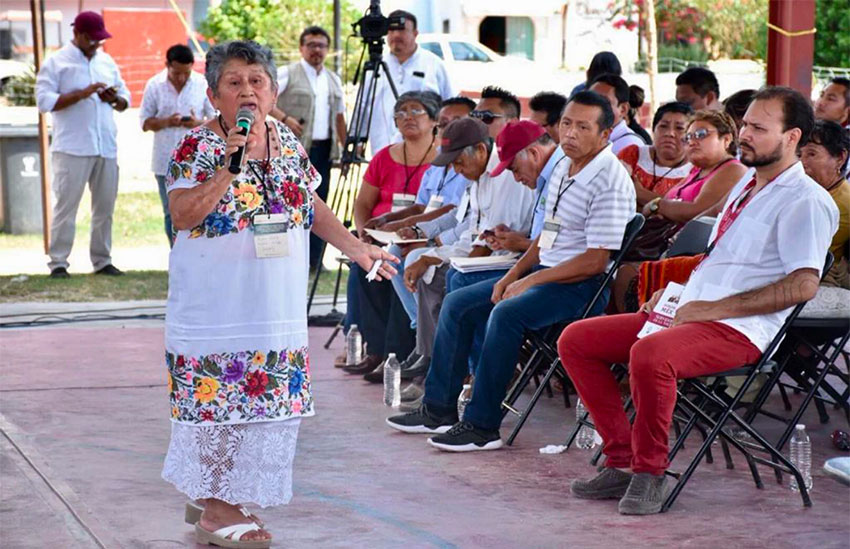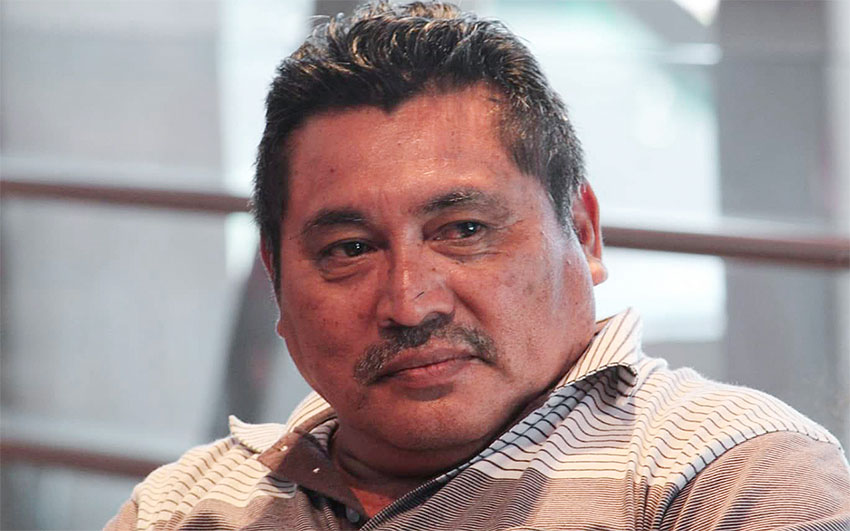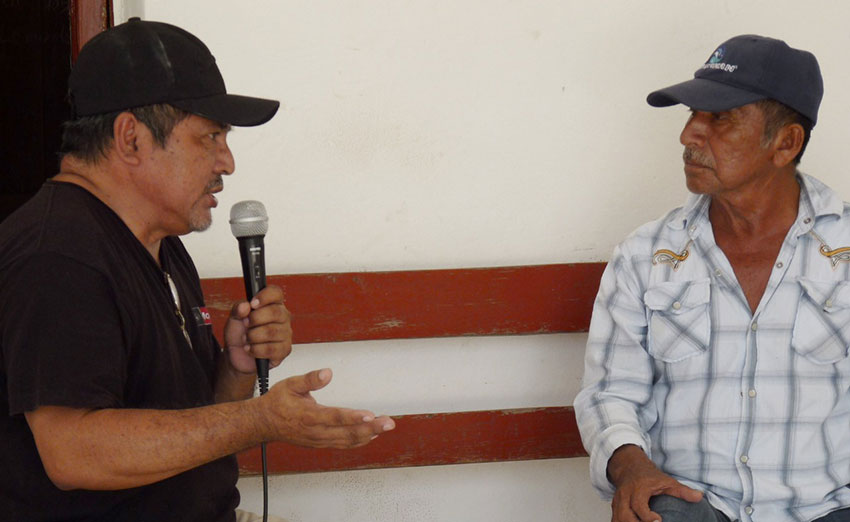A suspected gang leader allegedly involved in the abduction and presumed murder of 43 teaching students in Guerrero in 2014 has been ordered to stand trial on organized crime charges not related to the students’ disappearance.
A federal judge on Thursday ruled that José Ángel “El Mochomo” Cassarrubias Salgado, presumed leader of the Guerreros Unidos gang, and his lawyer, Arturo Rodríguez García, must go on trial on drug trafficking charges.
Both men are being held in preventative custody in the Altiplano federal prison in México state.
The federal Attorney General’s Office (FGR) alleges that Rodríguez was also a member of the Guerreros Unidos gang, which is accused of abducting students from the Ayotzinapa Rural Teachers College on September 26, 2014 and killing them.
According to FGR investigations, the lawyer was involved in the transport of drugs, colluded with authorities and acted as a front man for the gang in the purchase and sale of properties.
Cassarrubias has been accused of ordering the murder of the 43 students, who were abducted after being stopped by police in Iguala, Guerrero, in a bus they had commandeered to travel to a protest march in Mexico City.
He was arrested in June after almost six years on the run but released from the Altiplano prison on July 1 due to a lack of evidence. However, he was rearrested upon leaving the correctional facility.
The FGR alleged that El Mochomo’s mother paid multi-million-peso bribes to the presiding judge’s staff to secure her son’s release.
Rodríguez, who represented Cassarrubias at the July 1 hearing at which he was freed, allegedly acted as an intermediary in the arrangement.
Saturday will mark six years since the Ayotzinapa students went missing but the remains of only three of the young men have been found.
According to the previous federal government’s “historical truth,” the students were intercepted by corrupt municipal police in Iguala and handed over to the Guerreros Unidos, whose members killed them, burned their bodies in a dump and scattered their ashes in a nearby river. The students were allegedly mistaken as members of a rival gang, Los Rojos.
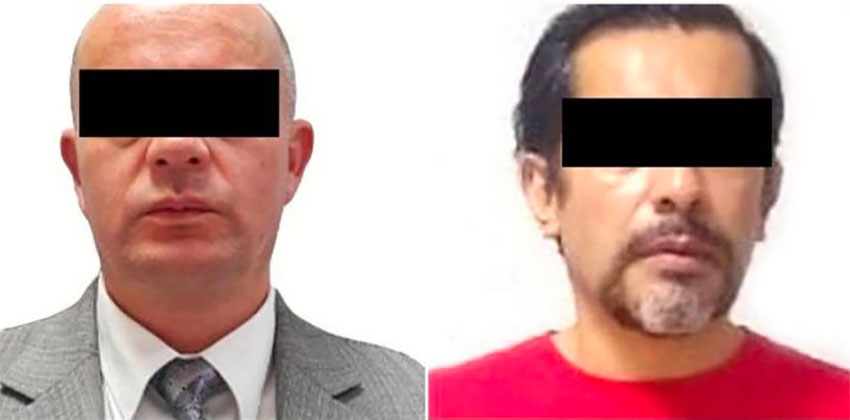
The current government rejected its predecessor’s official version of events and launched a new investigation shortly after President López Obrador took office in late 2018.
While the government claims to have made progress, what really happened to the students remains unclear and no alleged perpetrators of the crimes have been convicted.
There are, however, a number of suspects in prison awaiting trial.
El Mochomo’s brother, Sidronio Cassarubias Salgado, is in custody as are former Iguala mayor José Luis Abarca, his wife María de los Ángeles Pineda Villa, former Iguala security director Felipe Flores Vázquez and former municipal police chief Francisco Salgado Valladares.
Sidronio Cassarubias was allegedly the top leader of Guerreros Unidos while the former mayor and his wife – once known as the Imperial Couple of Iguala – have been accused of being the masterminds of the students’ abduction.
It is unclear when the suspects in the case of the students’ abduction and presumed murder, including El Mochomo, will be brought before a court on those charges.
Many other suspects, including former police officers and alleged Guerreros Unidos members, have been released from prison due to a lack of evidence or because they were found to have been tortured during the interrogation process.
Alejandro Encinas, deputy interior minister for human rights, said a year ago that the release of 21 municipal police officers detained in connection with the disappearance of 43 students was a sign of the “wretchedness and rot” of Mexico’s justice system.
At the end of June, Attorney General Alejandro Gertz Manero said that authorities were seeking to arrest 46 municipal officials in Guerrero for the crimes of forced disappearance and organized crime in relation to the kidnapping of the students. It’s unclear how many of those officials have been detained.
Meanwhile, parents of the students continue to seek the truth about what happened to their sons and where their remains are today.
The parents and other relatives of the victims will march on Saturday from the Angel of Independence in Mexico City to the capital’s central square, the zócalo, where a rally will be held to call for justice.
On Thursday they protested outside the headquarters of the Federal Judicial Council, where they accused judges of acts of corruption in the case. Although the federal government has shown a willingness to get to the bottom of the mystery, a lawyer for the parents said, the Federal Judiciary has not been moving in the same direction.
Source: El Universal (sp), Milenio (sp)
